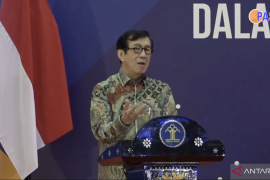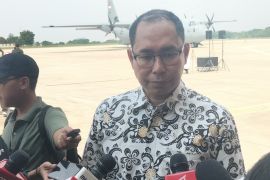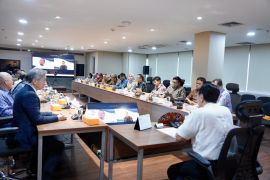Without mentioning her name, the minister said at a press conference in his office here on Friday that the Australian prisoner was one of 1,291 convicts to receive parole.
He noted, "it (the parole) is not a policy or a facility. That is a prisoners right and it is put in a regulation and given in line with other existing regulations."
He said that the parole was authorized based upon the Government Regulation Number 32/99, which was later revised into Government Regulation Number 28/2006.
Based upon the regulation, parole may be granted to a prisoner who has demonstrated good conduct while in prison, as shown in Register F which contains records of order violations and disciplinary sanctions.
Setara Institute has criticized the governments decision, as being influenced by political considerations, in view of the relations between Indonesia and Australia.
"I see political considerations behind it. Moreover, the Australian government has recently returned Adrian Kiki, the wanted corruption convict from Indonesia," Hendardi, the chief of the non-governmental organization in advocacy for democracy, freedom and human rights, told Antara.
He said relations between the two countries have often been marked by dynamics which have not always been positive.
He noted that it was not impossible that the decision was made based upon the return of the BLBI corruption convict.
"Returning a wanted convict is not easy, as proven by the recent death of a wanted corruption convict in that country," he said.
Hendardi added that Australia had pressured Indonesia for Corbys return.
"Although the prime minister has changed, several times, that country has kept pressuring Indonesia over the Corby issue," he said.
Although Corby has met the requirements for receiving a parole, Indonesia will be the loser in releasing her, he said.
Because narcotics crimes are categorized as an extraordinary crime, Herdadi feared the decision would reduce the deterrent effect on others.
Corby was arrested at Balis Ngurah Rai airport in 2004 while carrying 4.1 kilograms of marijuana.
The Supreme Court, in January 2006, ruled that she was guilty and sentenced her to 20 years in jail.
She was held at Kerobokan prison in Bali. She has so far received remissions in her sentence totaling 25 months.
President Susilo Bambang Yudhoyono, in decision number 22/G in 2012, granted her a pardon by reducing her jail term to 15 years.(*)
Editor: Heru Purwanto
Copyright © ANTARA 2014











